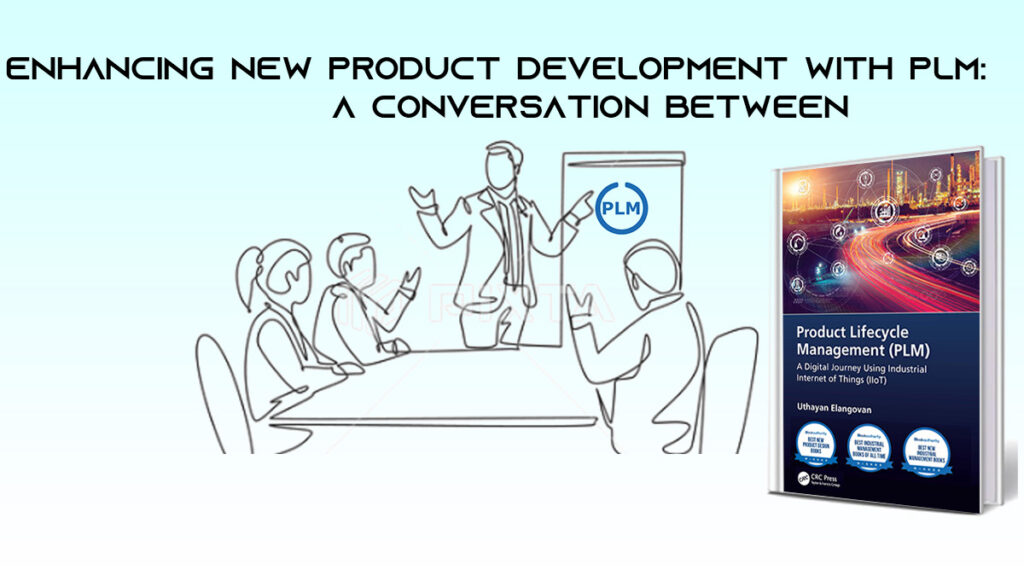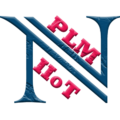Enhancing New Product Development with PLM empowers companies to optimize processes, improve collaboration, and streamline operations, ultimately leading to more efficient and successful product development initiatives.

Neel SMARTEC Consulting Firm (Neel): Good Day, Manufacturing Firm! Today, we would like to discuss how Product Lifecycle Management (PLM) can greatly benefit your new product development process. PLM is a powerful tool that can streamline your operations and boost your productivity. Let’s dive in!
Manufacturing Firm (MF): Good Day, Neel! We’re eager to learn more about PLM and how it can help us. Could you explain it to us in simple terms?
Neel: Absolutely! PLM is like a central hub that manages all aspects of a product’s life cycle, from its inception to retirement. It helps coordinate and integrate various departments, such as design, engineering, manufacturing, and sales, facilitating effective collaboration and communication.
MF: That sounds intriguing. Can you provide an example of how PLM can be applied in our day-to-day manufacturing environment?
Neel: Of course! Let’s consider the development of a new product, such as a robotic vacuum cleaner. With PLM, your team can use a single platform to create, manage, and track all the data related to the product. From the initial concept and design to testing, production, and even customer feedback, PLM keeps everything organized.
MF: That sounds like a game-changer for us. Can you elaborate on the benefits of using PLM for new product development?
Neel: Absolutely! PLM offers several key benefits. Firstly, it allows for efficient collaboration among different departments. Imagine the design team creates a 3D model of the vacuum cleaner. PLM ensures that the manufacturing team has real-time access to this model, which reduces errors and ensures that everyone is working with the latest information.
MF: That would definitely save us time and prevent costly mistakes. What other advantages can PLM bring to our operations?
Neel: PLM also helps with version control and change management. Let’s say the design team needs to make some modifications to the vacuum cleaner’s design. PLM ensures that these changes are properly tracked, documented, and communicated across the organization. This way, everyone involved is aware of the updates, avoiding confusion and potential rework.
MF: That’s fantastic! We’ve had instances where miscommunication led to rework and delays. How does PLM help with ensuring regulatory compliance?
Neel: Excellent question! PLM enables you to integrate regulatory requirements into your product development process. By incorporating compliance guidelines and standards into the PLM system, you can ensure that all necessary checks and validations are met throughout the entire lifecycle.
MF: That’s a relief! We always strive to meet regulatory standards, and having a system that supports compliance would be invaluable. Are there any other advantages we should know about?
Neel: Certainly! PLM also helps in managing the supply chain. It can provide visibility into component availability, lead times, and costs, allowing you to make informed decisions during the development process. This helps avoid delays caused by sourcing issues and optimizes your procurement strategy.
MF: That’s brilliant! Improved supply chain management would definitely streamline our operations. How about the long-term benefits of implementing PLM?
Neel: Over time, PLM accumulates a wealth of data that can be leveraged for future projects. This data includes design history, lessons learned, and performance metrics. By analyzing this information, you can identify trends, improve product quality, and make informed decisions to drive innovation and stay ahead of the competition.
MF: That’s impressive! We can see how PLM can significantly benefit our new product development process. How do we get started?
Neel: Getting started with PLM involves assessing your organization’s specific needs and selecting a suitable PLM system. Once implemented, proper training and change management are crucial to ensure a smooth transition. Our consulting firm specializes in PLM implementations and can guide you through every step of the process. In the mean time please refer our publication on PLM.
MF: That’s great to hear! We appreciate your expertise and support. Let’s work together to enhance our new product development process with PLM.
Neel: Absolutely! We’re excited to be part of your journey towards more efficient and successful new product development. Let’s make it happen!
In this conversation, we explored the benefits of PLM in new product development, emphasizing its role in streamlining collaboration, ensuring regulatory compliance, managing the supply chain, and leveraging data for continuous improvement. By implementing PLM, the manufacturing firm can enhance efficiency, reduce errors, and drive innovation, leading to greater success in their new product development endeavors.
In the realm of PLM solutions, both OpenBOM PLM for SME and Windchill PLM for Discrete Manufacturers from PTC stand out as powerful options. Whether you are considering a PLM upgrade, implementation, rollout, or ongoing support, our consulting firm is here to assist you every step of the way. With our expertise and dedication, we will ensure a seamless transition as you harness the full potential of PLM, empowering your company to achieve greater efficiency and success in product development.


